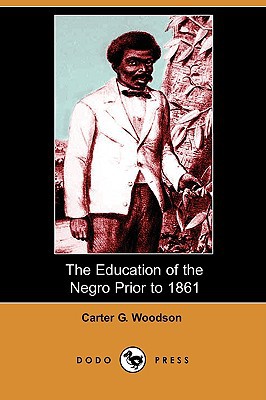

 |

|

The average rating for The Education Of The Negro Prior To 1861 based on 2 reviews is 4.5 stars.
Review # 1 was written on 2013-03-14 00:00:00 Thomas Carner Thomas CarnerA real find. Carter G. Woodson is called the father of African American Studies and wrote this book in the early 20th century. He documents how African Americans received education before 1861. When slaves were brought over there was a need for them to do work such as book keeping and records by their masters. It was considered important to have them educated enough to do this work. Others thought it important for slaves to become educated enough to read the bible and become Christians. Catholics and Quakers were especially consistent in educating slaves. Around the time of the American Revolution, educating slaves was thought of because slavery was thought to be an institution on its way out. People desired to have slaves prepared for freedom. The cotton gin and cotton changed a lot. Slaves became more valuable commodities and masters feared that educated slaves would not be content as fielder hands and drudgery type work. An effort that grew stronger by 1830, saw the South create draconian laws against educating slaves. The laws were specifically created to prevent outsiders from the North from coming down and educating Blacks. Masters had always had the right of way and education to slaves by masters, their children, etc. we're left alone. As time continued, the colony movement grew as did the abolitionist movement. Colonists believed in educating blacks to live in Liberia and pressed that as a goal. Free blacks refused that idea. Abolitionists attempted to educate but few ways to do it. The Fugitive Slave act put more onerous regulations on and caused a few to defy it despite penalties. For higher education the debate whether to teach a trade or a liberal education lingered. Many felt higher Ed should only be for those willing to move to Liberia. Trade groups for whites protested new competition and the lower wages the colored would receive. For younger students, public education was seen as being on welfare and many Blacks. Refused it. The debate for education continues todt. |
Review # 2 was written on 2014-06-14 00:00:00 Johny English Johny EnglishTouchstone text. |
CAN'T FIND WHAT YOU'RE LOOKING FOR? CLICK HERE!!!